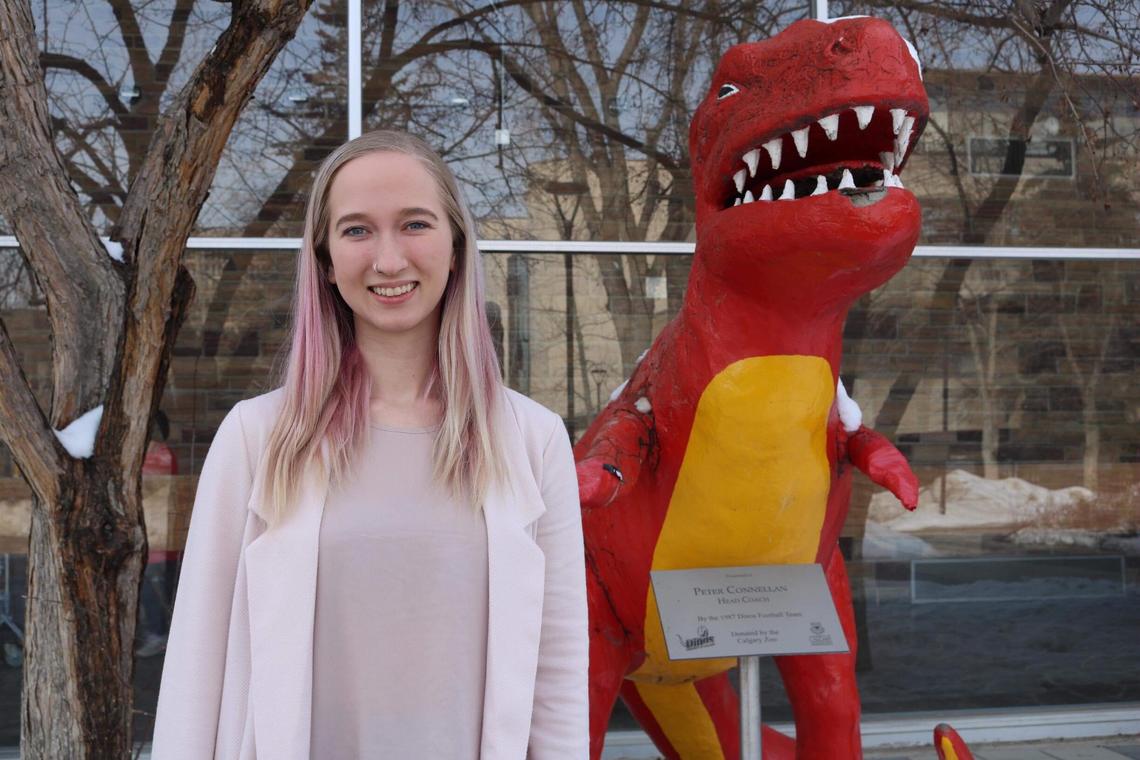April 3, 2018
Extracurricular activities on campus are 'absolutely worth it,' says peer helper volunteer

Melinda Coetzee says involvement in the Peer Helper Program has enhanced her university experience.
Jessica Cholin
From the moment students step on University of Calgary soil during O-Week, they are told to get involved on campus, put ourselves out there, join a club, volunteer for a good cause, etc. However, it’s easy to feel overwhelmed and intimidated by all of these suggestions. So, are extracurricular activities actually worth it?
Melinda Coetzee argues that they absolutely are.
Coetzee, fourth-year BA/BKIN – dance and general kinesiology student, says her time as a peer helper at the Faith and Spirituality Centre (FSC) and Leadership and Student Engagement Office has provided her with skills and opportunities that she otherwise would not have.
“I have gained a lot of experience with improving my communication skills, through reaching out to clubs around campus and making sure email correspondence with them is clearly communicating what we’re actually wanting.” As for leadership skills, Coetzee says that being team leader at FSC has allowed her to organize, schedule, and lead meetings, transferable skills she will use in her future career.
Coetzee’s involvement as a peer helper, Rehabilitation Centre volunteer, and executive on two clubs — Student Rhythms Club and Taking Strides Club — has been a rewarding experience. “I wanted to see how many people I could reach and impact, and how they could impact me as well,” she says.
“I wanted to get more involved and I thought that getting involved with the offices on campus, with things that are important to me, such as pluralism and leadership, would be a great way to accomplish that,” says Coetzee about why she sought out the Peer Helper Program. She notes that her position as a peer helper has given her the opportunity to connect with students who may be struggling, and allows her to be that friendly face for people to confide in.
Coetzee notes that people tend to shy away from FSC because there is a misconception that you have to be religious to enter the space. “You do not need to be religious by any means in order to enter FSC," she says. "FSC is an open and welcoming space that allows you to explore other religions without having to commit or believe in any one in particular. It’s all about pluralism — acknowledging that there are many different views and working together to become a central community.”
Moreover, Coetzee encourages students to drop by FSC and check out the space for themselves. At the very least, “FSC is a space to hang out, meet new people, and enjoy free food and drinks,” she says.
Trying to balance school work, volunteering, a job, and a social life can be very challenging. And Coetzee is no stranger to this balancing act. Her secret to juggling a busy schedule is to make time for yourself, regardless of how hectic life gets.
“I don’t think we are as self-aware as we think are. It is important to be mindful of our own thoughts and feelings, and to take time to check in with ourselves,” she says. No matter how busy Coetzee’s schedule gets, she claims that the balancing act is worth it in the end.
“Advice I would pass on to incoming students is to get yourself involved, whether it’s through volunteering on campus, joining a club, or becoming a peer helper. There are so many different volunteer opportunities that the university offers,” says Coetzee. “Join a club, and if you don’t like it, try something different. Involvement will 100 per cent positively enhance your university experience."
